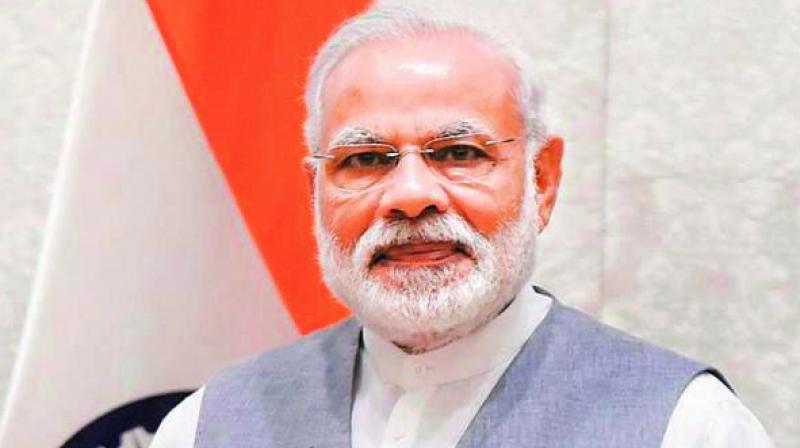PM Modi may address nation on August 7
According to the resolution moved by Mr Shah, Article 370 ceases to be operative from Monday itself.

New Delhi: Terming Article 370 of the Constitution the “root cause” of terrorism and coming in the way of development in Jammu and Kashmir, particularly in the Valley, the Narendra Modi government on Monday took a bold and unprecedented step of revoking the contentious Article 370 — which accorded a special status to the state — and also proposed bifurcation of the state into two Union territories — Jammu and Kashmir, and Ladakh.
The government managed to keep the numbers in its favour in the Upper House, where it is yet to secure a majority, with some non-NDA parties supporting it and the JD(U) and the TMC staging walkouts, which brought down the total strength.
Both the resolutions and the Reorganisation Bill will now come up in the Lok Sabha on Tuesday. The House also approved the Jammu and Kashmir Reservation (Second Amendment) Bill 2019, which was part of the business list of the day.
Asserting that Jammu and Kashmir “was, is and will always remain the crown of the country”, Mr Shah claimed the move has “corrected a long overdue historic wrong”, with the BJP maintaing that the government’s move has in the “true sense led to the integration of the state” with the rest of the country. On queries on the UT status to Jammu and Kashmir, Mr Shah clarified that whenever the “situation becomes normal” and the “time is right”, the UT status will be reverted to full statehood. Also, the Prime Minister is likely to address the nation on August 7 in this regard.
With the BJP-led NDA government fulfilling one of the Sangh Parivar’s core issues, RSS supremo Mohan Bhagwat and his second-in-command Bhaiyya Joshi congratulated the government for “this bold initiative which was very much necessary in the national interest, including the state of Jammu and Kashmir”.
According to the resolution moved by Mr Shah, Article 370 ceases to be operative from Monday itself. “The President, on the recommendation of Parliament, is pleased to declare as from 5th of August 2019, all clauses of the said Article 370 shall cease to be operative...”, the resolution stated. The Reorganisation Bill proposed bifurcation of the state into two Union territories — Jammu and Kashmir division and Ladakh. The Ladakh UT will have no legislature, like Chandigarh, while the J&T UT will have a legislature like Delhi and Puducherry, where key subjects like law and order will remain with the Centre.
Amid a strong buzz in the state and in political circles for over a week that the BJP was planning to fulfill the Sangh Parivar’s core agenda of abrogating Article 370, a crucial Cabinet meeting was held at the Prime Minister’s 7 Lok Kalyan Marg residence here with members of the Cabinet Committee on Security meeting beforehand, before Parliament was apprised by Union home minister Amit Shah about the government’s decision. In the Rajya Sabha, Mr Shah clarified that the BJP had been seeking the abrogation of Article 370 since its earlier Jan Sangh days.
Rumours had started doing the rounds that the Modi government was planning some major step in regard to J&K, after additional troops were deployed in the state. The state administration, now under President’s Rule, had ordered curtailment of the annual Amarnath Yatra and asked pilgrims and tourists to leave the Kashmir Valley, citing terror threats, and outstation students were asked to leave the NIT campus in Srinagar and go home, and not to return till further orders.
Taking on the Opposition members, Mr Shah said while most of them opposed the move on technical grounds, including that it could be challenged in the Supreme Court, none of them specified how the article benefited the state or its people. In a meesage to the youth of J&K, particularly the Valley, Mr Shah said only few politicians and separatists had benefited from Article 370, which had only hindered development, tourism, education, job opportunities and health, and did not let democracy function. Mr Shah said the only thing that flourished because of Article 370 was terrorism.
Earlier, informing the Upper House of the government’s decision, Mr Shah also said President Ram Nath Kovind had signed the official notification abrogating Article 370, which the Congress termed as a “catastrophic step”, and said it marked a “black day” in the constitutional history of India. Two PDP members had to be physically removed from the House after they tore a copy of the Constitution after the announcement.

